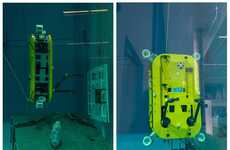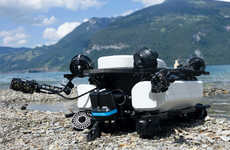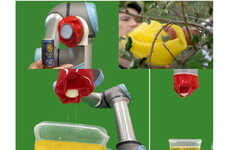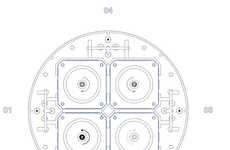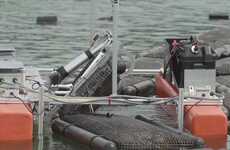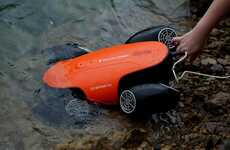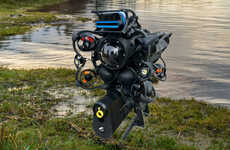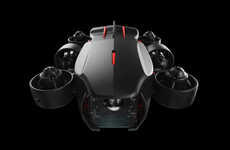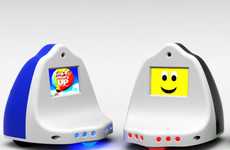
The Rotary Actuated Dodecahedron Safely Captures and Releases
References: robotics.sciencemag.org & wyss.harvard.edu
The Rotary Actuated Dodecahedron is a 12-sided contraption robot designed to gently capture sea creatures without damaging them. The underwater robot's design draws inspiration from traditional Japanese paper-folding techniques and it is constructed using 3D printing processes. It can be attached to the arm of rovers and controlled above water to capture the delicate underwater organisms. It was developed by Wyss Institute for Harvard University, providing them with a non-invasive tool for extracting marine samples.
The Rotary Actuated Dodecahedron is comprised of five 3D-printed parts of polymer petals that are connected to a range of rotating joints controlled by one motor. It rotated to fold up into a 12-sided cage construction and dives as deep as 700 meters. It has so far captured and released marine organisms including octopus, jellyfish and squid.
The Rotary Actuated Dodecahedron is comprised of five 3D-printed parts of polymer petals that are connected to a range of rotating joints controlled by one motor. It rotated to fold up into a 12-sided cage construction and dives as deep as 700 meters. It has so far captured and released marine organisms including octopus, jellyfish and squid.
Trend Themes
1. Origami-inspired Design - The use of origami-inspired design in robotics presents opportunities for creating efficient and adaptable structures.
2. Non-invasive Sampling Tools - The development of non-invasive sampling tools opens up possibilities for collecting marine samples without causing harm to delicate organisms.
3. Integration of Robotics and Marine Research - The integration of robotics and marine research provides innovative solutions for studying underwater ecosystems and organisms.
Industry Implications
1. Robotics - The robotics industry can capitalize on the origami-inspired design trend to create robots with greater maneuverability and versatility.
2. Biotechnology - The biotechnology industry can utilize non-invasive sampling tools to efficiently collect marine samples for research and development purposes.
3. Marine Exploration - The marine exploration industry can benefit from the integration of robotics and marine research to enhance data collection and analysis capabilities.
1.2
Score
Popularity
Activity
Freshness

